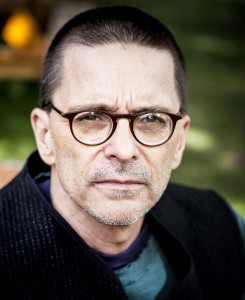Nature Doesn’t Negotiate: Robert Jensen (#112)
One of the ways that radical ideas become more mainstream is when those of us who hold them aren’t afraid to speak about them.”
 This thought has guided much of journalism professor Robert Jensen’s work. His writing and speaking often focus on the news that “we live in an economy that is based on the destruction of places all over world.” In this 2015 interview, Jensen explains what he calls “an unprecedented set of threats to the possibility of ongoing, large-scale, human habitation of the planet.”
This thought has guided much of journalism professor Robert Jensen’s work. His writing and speaking often focus on the news that “we live in an economy that is based on the destruction of places all over world.” In this 2015 interview, Jensen explains what he calls “an unprecedented set of threats to the possibility of ongoing, large-scale, human habitation of the planet.”
Jensen takes a critical approach to media and power. Much of his work has focused on pornography, a radical feminist critique of sexuality and men’s violence, and white privilege and institutionalized racism. He has written:
If there is to be a decent future, we have to give up on the imperial fantasy of endless power, the capitalist fantasy of endless growth, the technological fantasy of endless comfort…we should mourn the world that these systems have created and search for something better. Systems that celebrate domination are death cults, not the basis for societies striving for justice and sustainability.”
Bob Jensen is not afraid to speak the truth. He has an impressive body of work, all holding up a mirror to our society so we can see what we have created. We’ll undoubtedly want to circle back and talk to him again, as we just scratched the surface in this interview recorded in October of 2015.
This is the simple discovery which we must confront. We were given a place in the creation, with a beauty beyond telling, and we have failed to care for it. And as our collective contempt for the non-human world has intensified, so has our contempt for each other. We have failed to care for each other.”
This is the twelfth in our series of podcasts and radio programs. We post a new podcast episode every Thursday. Be sure to subscribe! You can find us at iTunes, SoundCloud and Stitcher, or sign up to get an email every Thursday with the newest episode. If you like what you hear, please support this project with a tax-deductible donation. Your comments are invited below. Is it helpful, or even essential, for us to be honest with ourselves about our bleak prospects? What do you think?
More About Robert Jensen:
Robert Jensen is a professor in the School of Journalism at the University of Texas at Austin. He worked as a reporter and editor before joining the UT faculty. He is widely published and has appeared as a guest expert on numerous national television news programs. Some books he has authored:
Plain Radical: Living, Loving and Learning to Leave the Planet Gracefully
Arguing for Our Lives: A User’s Guide to Constructive Dialogue
We Are All Apocalyptic Now: On the Responsibilities of Teaching, Preaching, Reporting, Writing, and Speaking Out
All My Bones Shake: Seeking a Progressive Path to the Prophetic Voice
Getting Off: Pornography and the End of Masculinity
The Heart of Whiteness: Confronting Race, Racism and White Privilege
Citizens of the Empire: The Struggle to Claim Our Humanity
Writing Dissent: Taking Radical Ideas from the Margins to the Mainstream
Pornography: The Production and Consumption of Inequality (with Gail Dines and Ann Russo)
Freeing the First Amendment: Critical Perspectives on Freedom of Expression (co-editor with David S. Allen)
Photo Credit: Nerissa Escanlar.



Capitalism, like all ism’s is an abstraction that in practice can be many things. Certainly our present model of capitalism cannot be sustained. Then again, the USSR model of communism couldn’t be sustained. In fact their version of communism turned out to be an even worse than our beloved economic model.
On the other hand, low-density populations of hunter gatherers have practiced a sharing economy for most of the time our species has been in existence. Politically, they practiced what I would call consensus. I’d say that conforms to some sort of idealization of “communism”.
The simple fact of the matter is that ALL political and economic systems fail when an animal that evolved as a small-group animal tries to live as a eusocial animal with numbers exceeding all ecological reason.
It all boils down to numbers and what we are evolved to be.
If we were an intelligent species we’d bring our numbers down gracefully.
From Mark Hertsgaard, environment correspondent for The Nation: “Science does not care about humans’ emotions or political conundrums. The laws of physics and chemistry do not compromise; they don’t know how. We must either find a way to respect these laws or, our good intentions notwithstanding, we will find ourselves on a road to hell.” http://www.thenation.com/article/the-most-ambitious-emissions-pledges-on-the-table-in-paris-would-still-result-in-catastrophic-warming/
If we believe that we can grow infinitely without any consequence, we are destined to be doomed.